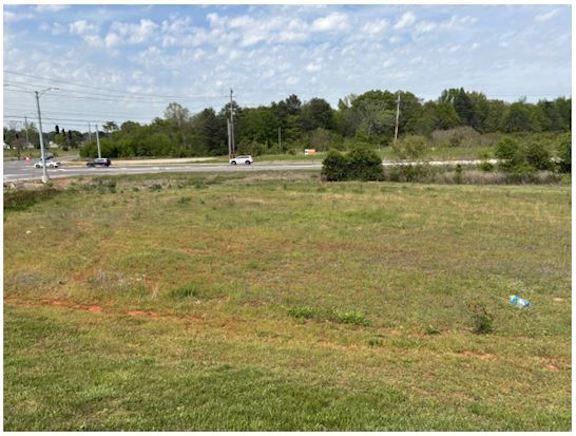Athens shooting may invoke ‘stand your ground’ law
Published 6:30 am Tuesday, September 19, 2017
An Athens man who fatally shot a Harvest man during a domestic dispute early Sunday morning will not be charged with a crime at this time. The case, which may be covered by the state’s so-called “stand your ground” law, will be sent to the Limestone County District Attorney, who may let the grand jury decide if charges are merited.
The case
Trending
Athens police were called to a man’s home in the 2400 block of McClung Lane at 3:49 a.m. There, they found Christopher Demond Carter, 29, of Hammond Road, Harvest, lying dead in the street from multiple gunshot wounds, said Police Chief Floyd Johnson and Limestone County Coroner Mike West.
The man who lived at the home had been shot in the arm, and his girlfriend had been shot in the leg.
“At this time it appears this was a domestic incident,” Johnson said Sunday. “We’re being told an ex-boyfriend of the female came to the residence on McClung Lane and confronted her about her current boyfriend. After an argument, a gun was pulled and shots were fired by the ex-boyfriend. The new boyfriend ran back in his house, got his pistol and shot the ex-boyfriend. Neither the deceased nor the female lived at the residence.”
The two survivors were treated at Athens-Limestone Hospital and released.
Police will make no initial arrest in the case.
“I met with our investigators this morning (Monday), and we went over evidence collected and statements taken in the case,” Johnson said. “Our investigation will be continuing for several weeks to come. We have evidence that will have to be sent for examination and analysis. When this case is completed, our department will give a copy to the District Attorney’s Office. The DA can then make the decision to present the case to a future grand jury to determine if criminal charges will be brought in this case.”
Trending
The details of the case suggest Alabama’s stand your ground law could be in play.
Stand your ground
In 2006, Alabama lawmakers changed the state’s self-defense law. The revision meant a resident no longer had a “duty to retreat” and could “stand his or her ground” using physical force — even deadly physical force — as long as he or she was not engaged in unlawful activity and was in any place where he or she had the right to be.
Under the stand your ground law, a law enforcement agency can investigate the use of force but cannot arrest the person for using force unless it determines there is probable cause the force used was unlawful.
Conditional
Under the law, a person must be justified in using physical force and cannot be the original aggressor unless as the aggressor, he or she withdraws, communicates his or her intent to the other and the other continues to threaten the use of unlawful force.
Physical force is not justified if the person is engaged in an unlawful activity or the person they are using the defensive force against is a law enforcement officer acting in the performance of his or her official duty.
Justifiable force
A person is justified in using deadly physical force if he or she believes the other person is:
• Using or about to use unlawful deadly physical force;
• Using or about to use physical force against an occupant of a dwelling while committing or attempting to commit a burglary of such dwelling;
• Committing or about to commit a kidnapping, assault, robbery or rape;
• Unlawfully and forcefully entering a dwelling, residence or occupied vehicle, except when the person has a right to be in the dwelling, residence or vehicle — such as an owner or lessee — and there are no injunctions or domestic protection orders against him or her; and
• Unlawfully and forcefully entering a nuclear power plant.
Later revised
In 2013, state lawmakers revised the stand your ground law, saying a person is justified in using deadly force against someone who is using or about to use physical force against an owner, employee or other person authorized to be on business property when the business is closed to the public while committing or attempting to commit a crime involving death, serious physical injury, robbery, kidnapping, rape, sodomy or a crime of a sexual nature involving a child under age 12.





